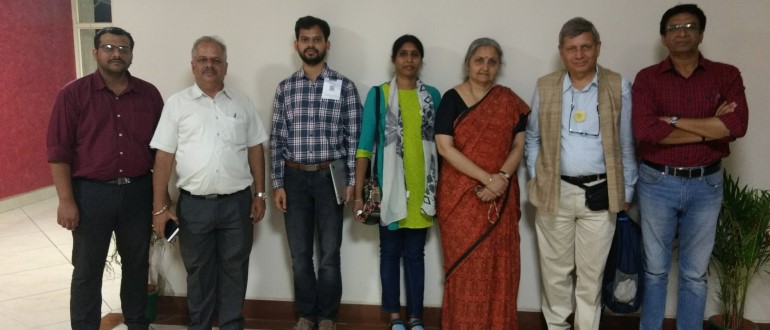
The second HDSI Workshop was conducted on 7th March 2020 at DRDO’s Officer’s Mess premises, Bangalore. The workshop included knowledge sharing and open discussion with the patients and families on different subjects.
Dr. Sanjeev Jain shared several experiences that he has encountered while treating HD patients. He focused on the need for Genetic Counselling before opting for HD testing and possible impact on the patient and family after test results are shared. He stressed on the importance of maintaining a patient registry for Huntington’s disease in India. There exists no official count to estimate of how many families are affected by this disease. In order to request any aid or assistance for our patients we need to be able to say how many patients need this facility and will benefit. So starting a patient registry for Indian HD patients is the need of the hour.
Dr Nikhil Ratna spoke on the clinical outcome for HD patients in his clinical experience. Dr Nikhil explained the spectrum of clinical outcomes in HD. While the illness is not currently curable, it is certainly treatable. Often these families have encountered a bleak picture from the medical fraternity when they have sought information about the disease.
Along with their own fears and misinterpretations they conclude that it is futile to seek medical help as anyway nothing can be done. This is very wrong. The disease itself is not fatal though debilitating. There are several aspects of the illness that can be managed better with the right advice at the appropriate time from different experts.
Simple medication and tips can bring relief to patients and their carers. For example, the kind of diet, the consistency of food, the care to be taken while feeding all seem very trivial but if not done carefully can lead to aspiration and pneumonia complications. Similarly, keeping a safe physical environment and preventing falls is very important. Addressing patients and treating them normally will maintain their mental well being.
While patients may be unable to speak and respond normally because of movements, they can hear and understand quite well. Thus, it is important for patient families to be in touch with clinicians. We hope that the HDSI can create a network of such experts who can reach out to patient families in the vicinity.
Dr. Vijaykumar Harbishettar recounted his experience of caring for HD patients in the UK. He explained the possibility of Home care facilities that are available and its necessity. He also explained how it can be availed. He is recently associated with Health Heal, an organisation that provides home care for several patients and is assisting Health Heal to understand the needs of HD and Dementia patients and to train the staff to take care of these needs.